- Home
- Aimée Thurlo
A Time of Change Page 12
A Time of Change Read online
Page 12
Jo had reached the end of the aisle when she heard a soft scratching sound followed by a low thud at the front door. The scratch could have been an animal—a cat or dog—but not the thud.
Jo ran to where Tom kept the shotgun, beneath the counter and out of sight beneath a gunnysack. You’d never see it unless you knew where to look.
“Who’s there?” Jo called out, pointing the barrel at the door, her thumb on the safety.
“It’s me, Leigh Ann,” a voice called out. “You’re okay, right?”
“Yes, I’m fine,” she said, relieved. Jo was putting the shotgun back under the counter when she heard Leigh Ann curse. “What’s going on?” Jo asked.
“I was trying to get my key in the lock when I dropped it somewhere, and now I can’t find it.”
“Hang on,” Jo said, flipping on the porch lights, then opening the door for her. “What on earth are you doing here this time of night? You nearly gave me a heart attack!”
“I’m sorry,” Leigh Ann said, picking up a key that had slipped into a crack between two wooden planks. “I was on my way back from visiting a friend when I saw the light in the back still on. I circled the store and saw your pickup out there, and that’s when I got worried. I thought of how you’d found Tom, and then of those guys who tried to break in the day of his funeral, and today’s robbery.… I scared myself half to death.”
Jo nodded. “I appreciate you coming over, but what if you’d been walking into trouble—me tied up or something, and held at gunpoint?”
“At least, like in the produce locker, you wouldn’t have been alone. And I had the phone ready. Once punch and presto—911. But enough of that. What are you doing here? It’s almost ten thirty.”
“I have to get the inventory software ready for tomorrow. I haven’t been able to sleep lately, so I figured I’d use my time productively.”
“You mean walking in on a murder victim, interrupting a burglary, becoming the surprise owner of your own business, getting robbed and locked up with the nuts and veggies, and then having your old troublemaking boyfriend show up at the door—all those little nonevents are actually keeping you awake? What’s gotten into you? No, don’t answer that. Just let me brew some fresh coffee for the one of us who might actually get sleepy, then I’ll give you a hand,” Leigh Ann said.
“It wouldn’t be fair. I can’t pay you overtime and I don’t want to take advantage.”
Leigh Ann smiled. “I volunteered, and the fact that you’re worried about taking advantage of me is why you deserve the help. Besides, no one has ever succeeded in taking advantage of me since the night of my senior prom. Don’t give it a thought.”
Working together, they set up a coding system for all the noncomputerized inventory, complete with electronic folders for each category—silver jewelry, pottery, rugs, and so forth.
It was one thirty in the morning when Jo finally dropped down into one of the empty chairs. “We’ve done all we can for tonight. Thanks for all your help. Go home now, and don’t worry about coming to work on time tomorrow.”
“Will you be in late, too?”
“Nope. Until this trading post’s back on track, I’ll be putting in a lot of time here. First thing tomorrow, I’ll start entering inventory into the system—make that today.”
“I’ll be heading north toward the Ute Mountain Rez at daybreak. Melvin lives just south of the line and he’s an early riser. I’m going to catch him at home.”
“While he’s still groggy?” Jo asked, smiling. “But will he be in a better mood or worse?”
She laughed. “No, it’s not like that. Melvin tends to follow certain routines when he gets into one of those moods, but I can’t go into it. Those aren’t my secrets to share.”
“I can respect that,” Jo said. “Thanks for your help tonight.”
“Glad to do it,” she said happily. “You take care and watch out for strangers on your way home.”
After Leigh Ann drove off, Jo remained in her chair. She could have slept right where she was without any problem, but to really decompress, she’d need a shower and time away from the trading post.
After locking up, Jo walked quickly to her truck, which was parked beneath one of the two light poles in the rear. On the way she automatically glanced at Tom’s home. It was Ben’s property now, but he hadn’t moved in yet. Though he wasn’t a Navajo concerned about the chindi, painful memories would work against him and block his way.
Even though her own father had passed away at the hospital, she’d considered moving out of her house for that same reason. Eventually deciding to stay, she’d changed the entire look of the place. She’d painted, then traded the old furniture for other pieces that more accurately reflected her own tastes. Her home had soon become haven for her, a place where all the cares of the day were left at the door.
She sighed. She’d sure be glad to see her own bed tonight. She’d crawl deep under the covers and, with luck, finally get some sleep.
* * *
Leigh Ann heard the alarm clock, and groaned into her pillow. It was six thirty in the morning and time to get going. She grudgingly opened her eyes and reached for the tiny lamp on her nightstand.
As she stretched in the king-sized bed, she became aware of its emptiness. For most of her adult life, she’d proudly defined herself as a good wife, or Kurt’s better half. Theirs had been one of those traditional, conservative, deep-in-the-heart-of-Texas marriages—except for one small detail. They lived in northwestern New Mexico.
Throughout their fifteen-year marriage, she’d kept house for Kurt, cooked, and laughed at his sexist jokes. She’d made love even when it was the last thing she’d wanted, and served up chile burgers and beer to him and his out-of-shape buddies all football season. Then, one day, another hunter’s stray bullet ended his life.
Leigh Ann walked across the bare hardwood floor to the bathroom. After Kurt’s death, everything that had defined her vanished. Determined to put the past behind her and begin anew, she’d given all his things away and even voted Democrat for the first time in her life.
Yet memories were tenacious little things and remained, waiting in every corner of the house. She’d loved Kurt, but no matter how hard she tried to please him, he’d always complained about one thing or another. His one constant gripe had always been her performance in bed, claiming she was frigid and inhibited. She’d tried hard to make things exciting for him, playing cheerleader, doing embarrassing lap dances, and even letting him tie her up. That quickly became his favorite thing, but he’d get too rough when they played those games and he’d scared her more than once.
Right to the end, she’d done her best to make him happy. She’d always cooked him good, man-sized breakfasts, and fixed herself up for him. She even made it a habit to greet him with a smile and a tight sweater each time he returned from one of his business trips.
Leigh Ann stood naked before the mirror, assessing herself. The pretty high school cheerleader who’d lured the high school fullback and been homecoming queen twice had faded away. At thirty-five, everything was still where it should be and hadn’t traveled that far south, but she’d drawn into herself after Kurt’s passing, not wanting to let another man into her life again.
Kurt had broken her spirit beyond repair, or so it had seemed until the day she met Melvin.
There was something very special at work between them. Melvin could tell it was her approaching just by the sound of her walk. He knew when she was feeling sad or happy, but most important of all, he treated her like someone who mattered.
Her job at The Outpost had helped her heal by showing her that she had something of value to offer the world, but Melvin had reminded her what it was like to feel like a woman again. There was nothing between them except occasional flirting, but maybe it was better that way. She stared at the place where her wedding ring had once been—a hollow groove worn smooth, which summarized it well. Dreams didn’t disappoint, but reality all too often sucked.
Choosing
a pair of comfortable jeans, boots, and a loose-fitting blouse, she went outside and climbed into her ancient Jeep. It was the only thing of Kurt’s she’d kept, mostly because selling it wouldn’t have brought in much, and she needed a way to get around. Her pearl white Lexus was long gone, repossessed within three months of his death because she hadn’t been able to make the payments.
With a thermos filled with iced water and a box of her special cinnamon cookies to share with Melvin, she set out. At least driving west and then north, she wouldn’t have the sun in her eyes.
Melvin’s home wasn’t at the end of the world, but with a little imagination, one could see it from there. The first few times she drove out there alone, she’d been scared to death that she’d get lost and her body wouldn’t be found until spring. On a map, this area of New Mexico was called the Meadows, but there wasn’t really much grass, just rolling hills, a few trees, and few landmarks. If you were in a low spot and couldn’t see the mountains to the west or the Hogback, it was easy to get turned around.
These days she knew how to change a tire, add oil if necessary, check the battery and radiator, and her cell phone worked—if she could get a signal. Fear was no longer such a big part of the equation.
Anticipation was, and the drive took forever. As the sun rose higher in the sky, she finally saw Melvin’s gray, scratch-stucco home in the distance. It was on a gentle slope, surrounded by shrub-high junipers and a few more distinctive piñon trees. It looked so isolated, she couldn’t imagine not being lonely out here. Yet that didn’t seem to bother Melvin.
Leigh Ann parked, went to his door, and knocked. She waited several minutes, listening, but didn’t hear any sound inside. Stepping back, she studied the ground and spotted what looked like a fresh set of vehicle tracks. Melvin didn’t drive, of course, but had friends in Fruitland who routinely drove him places too far for him to walk.
Knowing Melvin’s schedule by heart, Leigh Ann returned to her car, placed the Jeep in gear, and headed back toward the highway.
Just after 9 A.M., she arrived at Valley Elementary School. The slender trees clustered in the dirt parking lot made the place look like a desert oasis.
After stopping at the office to be cleared, Leigh Ann, with a visitor’s pass on a lanyard around her neck, followed the assistant principal down the shiny new hall. Colorful turquoise tiles mixed in with reds and tans formed a wonderful pattern on the floor, and colorful murals depicting local history and landmarks lined the walls between classroom doors.
She breathed in the interesting scent of sweaty little bodies and the trace of paint and glues of new construction as she strolled past the open doors. Finally they reached Mr. Tsosie’s room, according to the name on the door. Inside, the children were busy, active, and a little quieter than she remembered from her early years—much earlier, it suddenly occurred to Leigh Ann.
“Go right in,” her escort whispered, waving to the young Navajo teacher.
Leigh Ann inched into the room. Nobody looked up except for Mr. Tsosie, who smiled and gestured an invitation with a wave of his hand. Fifteen or so children, half of them Navajo and all about eight or nine years old, were seated or standing around three long tables. Their hands were busy smoothing and shaping lumps of red-, brown-, and yellow-colored clay into various shapes—except for one long-haired Anglo boy. He was pounding his clay flat with his palms.
Standing behind one very enthusiastic young girl with long black braids was Melvin. He was guiding her hands over the figure of a four-legged something—maybe a horse, or perhaps a pig. It was hard to tell.
The room grew silent as Melvin spoke—even the boy with the flat clay stopped his work. “Feel the length and position of the head, ears, snout, legs, and tails. By using gentle pressure and smoothing the clay, you can change its size and shape. The clay’s still soft, so if you need to pinch off a piece, or add a little more, there’s no problem.”
“Mr., ummmm, Melvin. What’s a snout?” one of the boys at the end asked.
A few of the children laughed.
“The nose, dummy,” another called out.
“Frogs don’t have noses, do they?” the first boy asked.
Melvin grinned. “A clay frog can have a nose. Let’s see what you come up with. See with your hands and your imagination.”
Melvin stepped back, then moved down the line. One student reached out, grabbed Melvin’s hand, and pulled it gently toward the mysterious glob she was working on.
“What do you think of my chicken?” she asked. “I tried to open its wings, but they kept falling off, so they’re next to its body now.”
Leigh Ann chuckled, but stayed well back, watching how the children responded to him. Melvin had a way with kids. Being around them made him come out of his shell, too. She’d never seen him looking more at ease. As she moved toward the Anglo boy, who as it turned out, was making a butterfly, Melvin stepped past her.
“Hello, Miss Vance,” Melvin said.
“How on earth did you know I was here?” Leigh Ann asked.
“The kids always act a little differently when we have an observer. I thought it might be a parent, then I caught the scent of your perfume.”
“Wow. Here? Even with all the clay and paints?”
“I can filter out the interference,” he said, then leaned closer to her and whispered, “I’ll be finished here in another fifteen minutes or so. Maybe you can drive me home? Mr. Tsosie was going to give me a ride, but he can’t leave until noon.”
“I’ll be glad to take you home,” she said. “And Mr. Tsosie won’t have to give up his lunch.”
Art class finished ten minutes later—with five minutes added for cleanup—and Melvin quickly found his way to where she stood. It never ceased to amaze her how he could orient himself. He’d told her once that he could see deep gray shadows where obstacles stood and that helped him navigate without a cane. Yet, to her, the way he compensated for his lack of sight seemed to hold an almost magical quality.
She led him to the Jeep, helped him inside, and switched on the engine. The motor roared, cut out for a second, then settled with a more or less even idle. She laughed. “Doesn’t exactly inspire confidence, does it? It’s like the engine’s telling me, ‘What now? I’m old. Go away and leave me alone.’”
“If this is just a ’98, it’s got a lot more miles in it. Are you still taking it to Gilroy Pete?”
“Yes, I am, and thanks so much for the recommendation. He’s an amazing mechanic and charges a fair price.”
“He’s a good man. Right now, he’s tuning up my Harley.”
“Your—” Seeing the mischievous smile on his face, she laughed. “Why am I the only one you tease? You’re always so serious around people—well, adults.”
“I don’t like being patronized or pitied. With kids it’s different. They never see me as a blind guy for very long. I’m just a guy who makes cool stuff.”
“You sure do,” she said.
“Thank you,” he said. “So what brings you here today? Is this a friendly visit or are you here on business?”
“Both. I came to offer you conversation, a job, and I even brought a bribe. I have some cinnamon cookies with me,” she said.
“I thought maybe you’d come up with a new Jeep scent—cinnamon oil. So what’s the project?”
“Let’s wait till we’re at your house. I’ll tell you more then.”
“Always mysterious,” he said with a trace of a smile.
“No, I just need to concentrate on my driving. There’s too much glare coming off the windshield. I picked up some bugs along the highway last night.”
“Yeah, and you also have a serious sales pitch you want to try out on me,” he said. “What are you doing, rehearsing in your mind?”
“Busted,” she said, laughing.
A half hour later, she pulled up to his home and parked. “We’re here.”
“I’ll get us some iced tea to go with your wonderful cookies,” he said, climbing out of the Jeep.
Once they were in his kitchen, Leigh Ann sat at his small round table and watched as he brought out two glasses and a plate for the cookies.
Melvin heard her set the cookies on the plate and reached for one. “These are great,” he said after a big bite. “If there are at least a dozen on that plate, consider me bribed.”
She smiled. She did a lot of that around Melvin. As she told him about the job, she watched his expression change, growing in intensity. He was interested.
“The money’s acceptable—very much so—but I’ll have to think about what I’ll be making before I begin. It won’t be a quick turnaround. I’ll need time to come up with the right idea first.”
“I love your animal sculptures. Maybe you can make another cougar like the one we sold on consignment at The Outpost last year. The way you fashioned the animal’s mouth and muzzle in a growl, even the hunching of the body and extended legs … it was as if the sculpture had a life of its own.”
“I can’t see the animal, but I know its spirit,” he said in a quiet voice. “The cougar is a master of his own destiny. He hunts with grace and strength and doesn’t waste a single stride. He sets a goal and follows through. I try to mold those qualities into the sculpture.”
“They were all there and more. It was amazing piece. If I’d had the money. I would have bought it myself.”
“You should have told me you liked it that much. I would have given it to you.”
She hesitated. “I appreciate the thought, but that wouldn’t have been right. You’re no starving artist, but money’s hard to come by these days for most of us.”
“I hear uncertainty in your voice again. It makes you uncomfortable whenever I offer you anything. If the cougar could have taken that away, it would have been worth the price.”
“No one else listens like you do. It’s like you hear what’s in my heart, not just my words.” As she looked into his dark, sightless eyes, she saw a gentle soul who walked a solitary path, like the cougars he liked to sculpt.
“When my sight was taken from me, the universe gave me other ways to see. Finding the path of harmony isn’t always easy, but if you open your heart and listen to its whispers, you’ll be led there.”

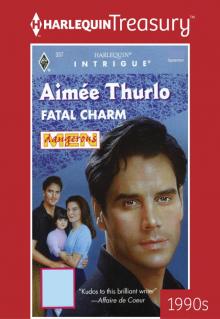 Fatal Charm
Fatal Charm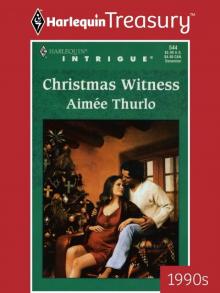 Christmas Witness
Christmas Witness Blood Retribution
Blood Retribution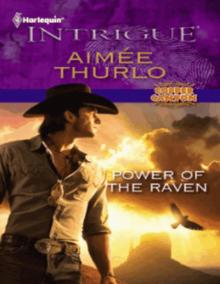 Power of the Raven
Power of the Raven Eagle's Last Stand
Eagle's Last Stand Bad Samaritan
Bad Samaritan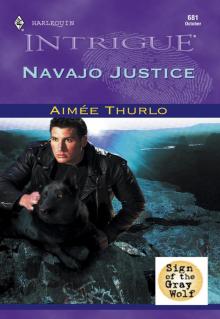 Navajo Justice
Navajo Justice Undercover Warrior
Undercover Warrior Wind Spirit: An Ella Clah Novel (Ella Clah Novels)
Wind Spirit: An Ella Clah Novel (Ella Clah Novels)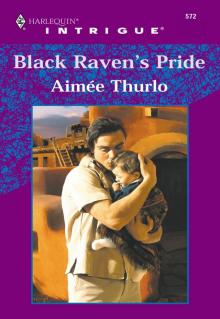 Black Raven's Pride
Black Raven's Pride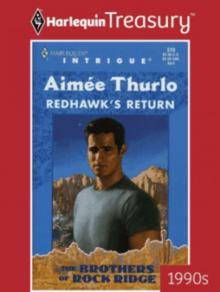 Redhawk's Return
Redhawk's Return Second Sunrise
Second Sunrise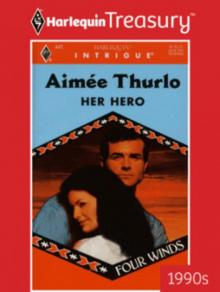 Her Hero
Her Hero The Prodigal Nun
The Prodigal Nun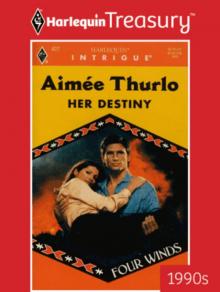 Her Destiny
Her Destiny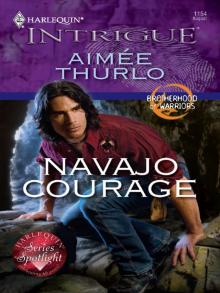 Navajo Courage
Navajo Courage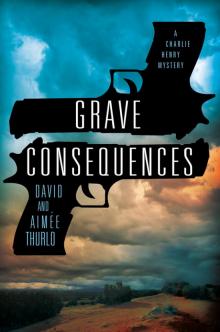 Grave Consequences
Grave Consequences Homespun Christmas
Homespun Christmas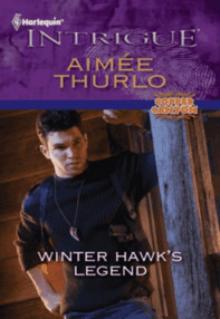 Winter Hawk's Legend
Winter Hawk's Legend Twilight Warrior
Twilight Warrior Restless Wind
Restless Wind Pale Death
Pale Death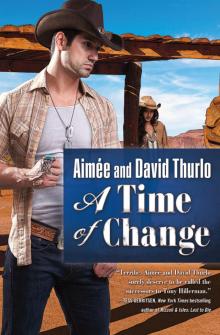 A Time of Change
A Time of Change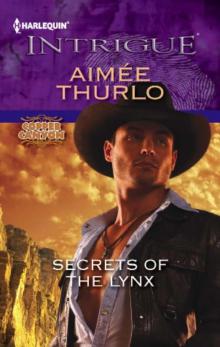 Secrets of the Lynx
Secrets of the Lynx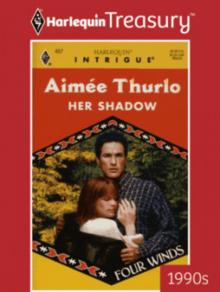 Her Shadow
Her Shadow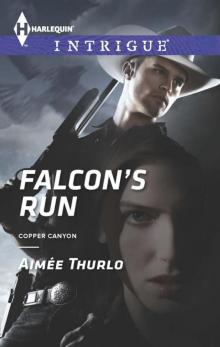 Falcon's Run
Falcon's Run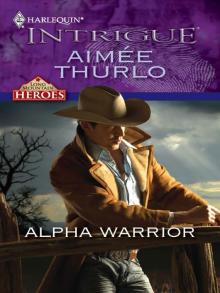 Alpha Warrior
Alpha Warrior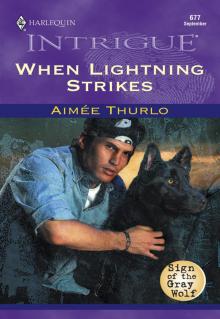 When Lightning Strikes
When Lightning Strikes Looking Through Darkness
Looking Through Darkness